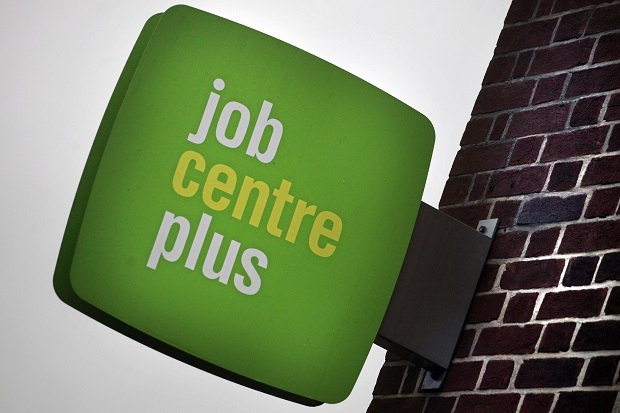Companies have cut new graduate jobs for the first time in four years because of fears about the economy since the Brexit vote.
The number of vacancies has fallen by 8 per cent compared with last year, according to the Association of Graduate Recruiters’ annual survey.
The Times reports that the latest figures follow four years of growth and last year the number of graduate jobs increased by 13 per cent.
This year’s fall also reflects nervousness about the effect of the incoming apprenticeship levy, which will be introduced in April with the aim of raising cash from business to fund expanded training in the workplace, the association said.
Meanwhile, hiring of new permanent staff in the UK has stalled in the weeks since the UK’s decision to leave the European Union, recruitment firm Hays has said.
The Telegraph reports that the FTSE 250 company, which recruits for large public and private-sector employers in the UK and abroad, said trading conditions had become more challenging as the year progressed, meaning net fees for the UK and Ireland division, which accounts for more than a third of the group’s business, were flat.
Alistair Cox, Hays’ chief executive, said some sectors, particularly businesses based in London, had been hit particularly hard.
Peer-to-peer lending
Zopa, Britain’s biggest peer-to-peer website, will trim the rates it pays to investors next week, saying that the recent Bank Rate cut has prompted a surge in new lenders and a shortage of borrowers.
According to The Telegraph, from September 8, all Zopa investors will see annual rates drop 20 basis points, or 0.2 per cent, mirroring similar moves by banks to cut savings returns following the Bank of England’s decision to cut interest rates to a fresh low of 0.25 per cent.
Zopa, which was the world’s first peer-to-peer lending website when it emerged in Britain in 2004, has now lent out £1.6 billion of ordinary people’s money by matching them with borrowers online.
Energy bills
Energy experts are warning that household energy prices could be about to rise for the first time in two years, driven partly by higher import costs following the Brexit vote.
The Co-op started the ball rolling when it told some of its 500,000 energy customers that, from 1 October, it would be raising bills by between 3 per cent and 6 per cent – the latter equating to a potential rise of almost £70.
The Guardian reports that the price of wholesale gas has steadily risen over the last three months but Britain is facing a double hit because gas imports from the continent are about 10 per cent higher still, due to a fall in the value of sterling against the euro.
The Co-op is raising the average bill for dual-fuel customers on a standard plan from £1,152 to £1,184 a year. People with pre-payment meters could find their bills rising from £1,115 to £1,184, according to the price comparison site uSwitch.
Back-to-school costs
Research from Lloyds Bank shows the average cost of preparing a child for school in the UK has reached £1,192 for primary school aged children (4 to 10-year-olds), and £1,108 for secondary school pupils (11 to 18-year-olds).
According to the Lloyds Bank Spending Power Report, which polled 2,070 people, parents spend an average of £132 per child on school uniforms and PE kit at the start of the year– the biggest single back-to-school cost.
But the largest ongoing cost for parents of primary school children is childcare at £329 a year, followed by lunches for 11 to 18-year-olds at £260. Other substantial costs include clubs and activities, where parents of primary school children can expect to fork out £170 over the course of the year, and £204 a year on secondary school trips.
The headline figures mask considerable differences in expenditure across the country. Parents in the South of England expect to spend 23 per cent more overall than the rest of the UK at the start of the new school year and a whopping 40 per cent more during the course of a full school year or £1,175 per child, versus £837 for the rest of the UK.
Inheritance
The results of a new poll suggest that young Britons are most likely to spend money from their family on property investments, with the majority of respondents planning to use any future money they come into thanks to relatives on first-time or buy-to-let property purchases.
The research team at www.lottoland.co.uk quizzed a total of 2,740 Britons for the study. All those taking part were aged 18 to 30 and revealed prior to questioning that they were expecting to receive a lump sum of money, either through inheritance or a trust fund, from family members in the future.
Of the 48 per cent of participants who stated that they were planning to use their inheritance money to invest in property, the majority (79 per cent) admitted that they were first-time buyers and would not be able to climb onto the property ladder without the financial help. A further 11 per cent stated that they’d be paying off mortgages with their money, 6 per cent shared that they’d be using the money for a buy-to-let investment, and 4 per cent were planning to purchase an overseas property or holiday home.
Finally…
Britons keen to update their home and garden over the warmest months are a nation of last-minute shoppers, with many forking out more as a result of their eleventh-hour spending, according to new research.
Just under half of Brits admit to waiting until there is unexpected hot weather before stocking up on their home and outdoor essentials, such as barbecues and dining sets.
Although there may be sales and offers later in the summer season, those who panic buy end up spending, on average, over £450 more than those who stock up early in anticipation of warm weather, according to a survey of 1,273 UK homeowners by garden and conservatory furniture e-tailer, Alfresia.co.uk.






Comments